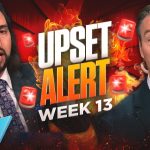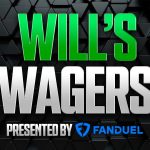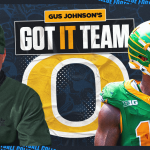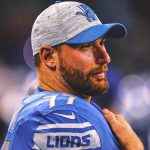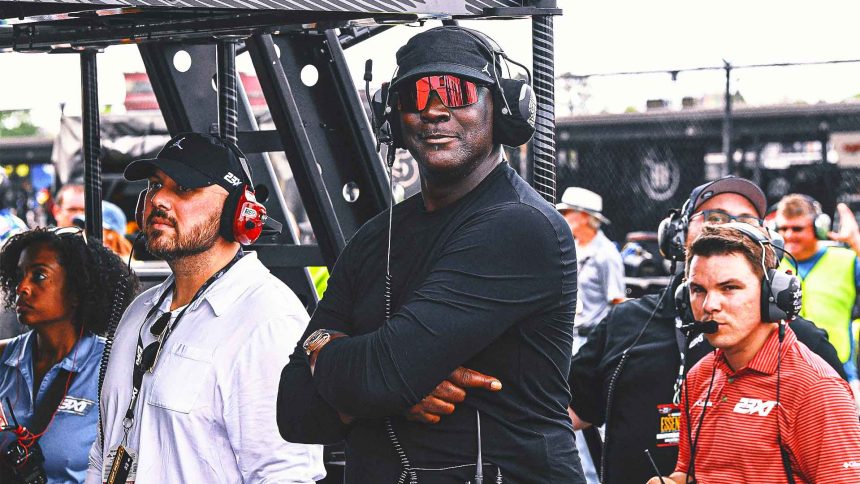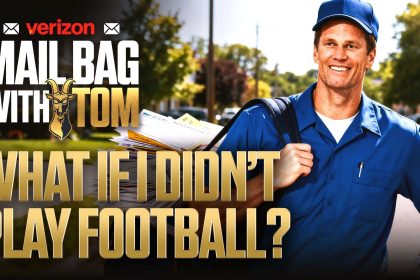The trial in the lawsuit filed by 23XI Racing and Front Row Motorsports against NASCAR is set to begin Dec. 1 and last 10 days.
Haven’t been paying attention over the last 14 months since it has been filed? No problem, this will get you up to speed, simply and quickly:
Who is suing?
The lawsuit was filed by 23XI Racing (co-owned by Denny Hamlin, Michael Jordan and Curtis Polk) and Front Row Motorsports (owned by Bob Jenkins) against NASCAR (owned by Jim France and Lesa France Kennedy and their families).
Why are they suing?
After not getting the charter provisions they wanted, 23XI and FRM opted not to sign the 2025-31 charter agreement and to sue under antitrust grounds. They claim that to have a premier stock-car racing product, NASCAR needs to have premier stock-car racing teams — but NASCAR does not provide the teams an economically viable business model. They claim that NASCAR is able to keep competitors from forming for the teams’ services and therefore can have that non-economically viable business model because NASCAR owns the majority of the bigger racetracks (and for those that it doesn’t own, won’t do deals to have races there without an exclusivity clause), requires charter teams to abide by exclusivity clauses and requires a base cost by the teams because they are required to buy the majority of parts and pieces for the Next Gen car from single-source providers.

Denny Hamlin and 23XI Racing are at the forefront of a lawsuit against NASCAR.
What does the law say?
The law is very broad: “Every contract, combination in the form of trust or otherwise, or conspiracy, in restraint of trade or commerce among the several States, or with foreign nations, is declared to be illegal.”
Rulings and interpretations by courts define the current parameters of what is considered a restraint of trade.
What does NASCAR say?
NASCAR claims that it has not violated antitrust law because it says it has done nothing to restrain trade outside what would be considered normal business practices and that it provides teams with the ability to have an economically viable business model. They cite increases in the charter payouts with the new charter agreement (2025-31) as a sign that they are not being anticompetitive. They also say the ability to run open — and therefore not be bound by any exclusivity clauses (something that was changed during the lawsuit) — allows car owners to have options.
Will there be a settlement?
There could be a settlement at any time — before, during or after the trial while the case is under appeal.
How long will the trial last?
The trial should last 10 days, give or take a day or two, depending on how long it takes for the six-member jury (there will be nine jurors with three being alternates) to reach a unanimous verdict. It will take place at the U.S. courthouse in Charlotte.
Who will testify?
The witness lists have yet to be made public, but it would be expected that Hamlin, Jordan and France will testify. As many as executives from eight teams, including Rick Hendrick and Roger Penske, could testify. And there will be testimony from economic experts on both sides.
Is the trial televised?
No. Proceedings in federal court prohibit cameras. Reporters are also prohibited from having their cell phones, so updates likely will come at breaks or if reporters choose to leave court to file updates.
Who has the burden of proof?
The teams have the burden of proof and the standard of proof is the “preponderance of the evidence.” It is not “beyond a reasonable doubt,” which is the standard of proof in a criminal trial.

Michael Jordan is co-owner of 23XI Racing.
What happens if 23XI and FRM wins?
If the jury rules in favor of 23XI and/or FRM, then the jury decides monetary damages. How much? It could be anywhere from $1 to $300,000 or even more. The jury only calculates actual damages and can only go back for four years. The judge could then opt to triple those damages.
The judge would determine the antitrust remedies — whether NASCAR has to get rid of the charter agreement, whether NASCAR has to make the charters permanent and/or sell the tracks and/or eliminate the Next Gen single-supplier system and/or eliminate the exclusivity clauses in deals with drivers, teams and tracks. Each side would recommend to the judge what remedies he should consider.
And here’s the kicker — the teams and NASCAR could settle and decide what the remedies are on their own before the judge rules on the remedies or while the decisions in the case are being appealed.
What happens if NASCAR wins?
The teams would remain unchartered and most likely would close by the end of the 2026 season (if not before). NASCAR would have their six charters to sell, and the teams likely could sell at least some of their equipment to those new team owners, whose teams also would be a possible landing spot for their employees.
Will there be an appeal?
Most likely there would be an appeal. NASCAR has already had a couple of key decisions against it that are readily appealable, but they can’t appeal before the end of the trial.
What issues already have been decided?
Judge Kenneth Bell has ruled that the market to be considered in this case is premier stock-car racing services (provided by the teams). That means that NASCAR can’t argue that if the teams want to go racing, they could do so in INDYCAR or other series. The judge made this ruling based on how NASCAR defined the market in its counterclaim against the teams that alleged they used illegal tactics to get a better charter deal. NASCAR would certainly appeal on this issue, considering it was one never decided by the jury.
In the end, will the teams be chartered?
Only if the teams win most likely. NASCAR doesn’t have to grant them charters since they didn’t sign for them, but there would be a huge incentive to grant them charters when discussing any settlement pending appeal. That incentive could depend on how much the teams get in monetary damages. NASCAR could say no to them having charters — NASCAR would say they don’t want to do business with those who sue them; the teams would say that would be a move out of spite — but it potentially would be costly.
Will the charter system remain?
Most likely yes. There is a small chance the judge could eliminate the charter system, but that likely would result in extended litigation from the other teams. Keeping the charters also likely would be something that could be negotiated to remain in any settlement while waiting for an appeal to be heard.
So this won’t be over at the end of the year?
Most likely not. But the direction of the case will be known, and any financial/other information teams and NASCAR might not want out there likely will already have been made public.
Bob Pockrass covers NASCAR and INDYCAR for FOX Sports. He has spent decades covering motorsports, including over 30 Daytona 500s, with stints at ESPN, Sporting News, NASCAR Scene magazine and The (Daytona Beach) News-Journal. Follow him on Twitter @bobpockrass.

